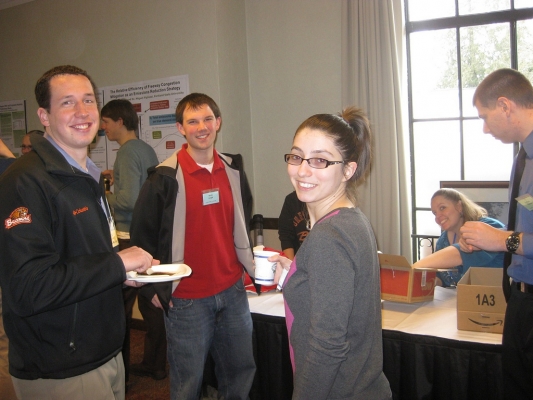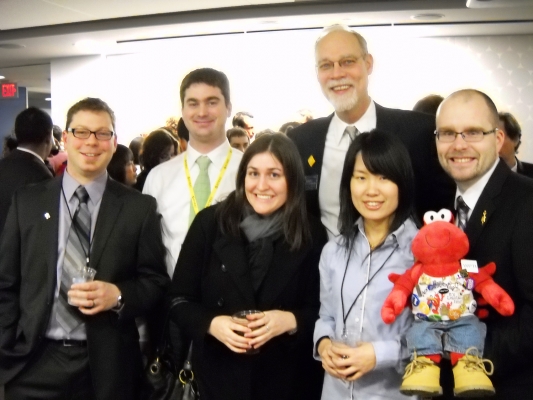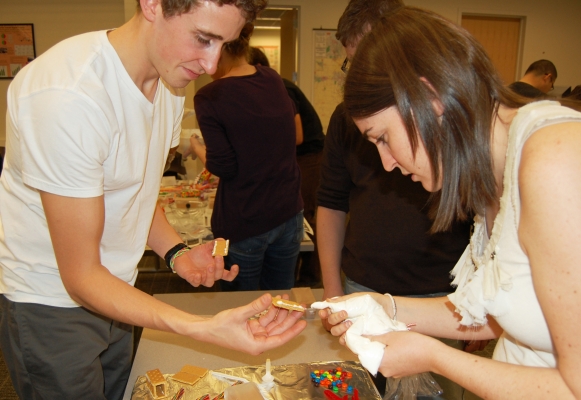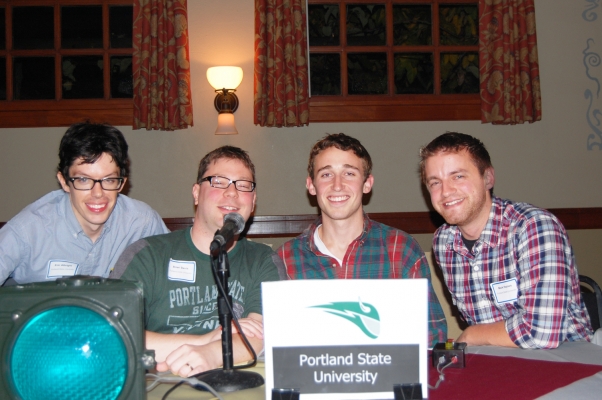On Feb. 21, OTREC joined with the Portland State University Students in Transportation and Planning (STEP) and the Portland-area News Rail~Volutionaries to host a debrief of January’s annual meeting of the Transportation Research Board (TRB) in Washington DC. Portland was well represented at the TRB meeting with a diverse array of students, faculty, and transportation professionals, and this event brought many of those attendees together at the Lucky Labrador pub in northwest Portland to share stories and lessons learned.
For students, the gathering presented an opportunity to showcase the research they presented TRB. Posters lined the room and many attendees donned buttons bearing the enthusiastic encouragement, “Ask me about TRB!” Built-in icebreakers ensured lively discussions about current issues and research in transportation.
Those who did not get to attend TRB were able to experience a little taste of it in Portland, as those who did go had no shortage of tales about the biggest annual gathering of transportation professionals.
STEP members in attendance took advantage opportunity to network with potential future employers and coworkers. To aid the soon-to-be graduates in their job hunts, STEP has created a LinkedIn group containing the profiles and resumes of many STEP members.

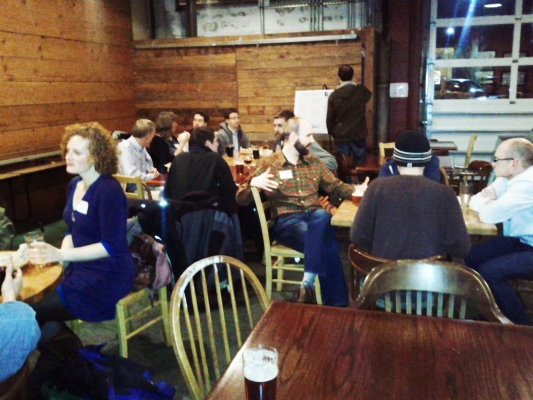
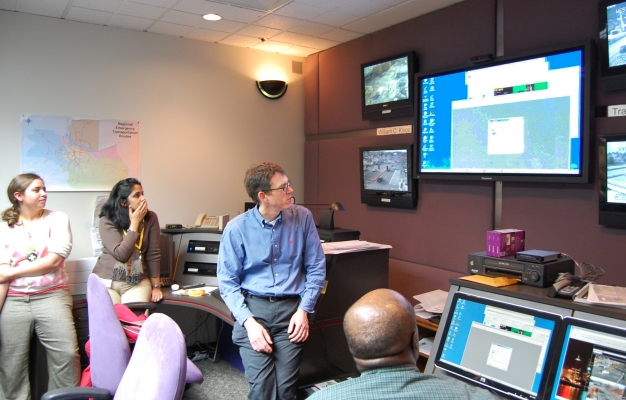
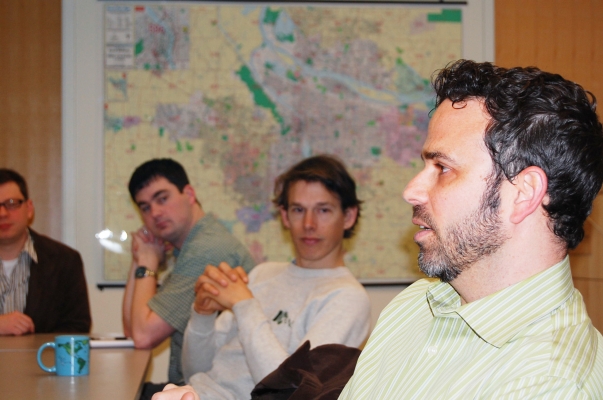
 He met with city and Lane Transit District officials before touring the
He met with city and Lane Transit District officials before touring the 